Ferenc Nemeth: One of a Kind
by Susan Frances
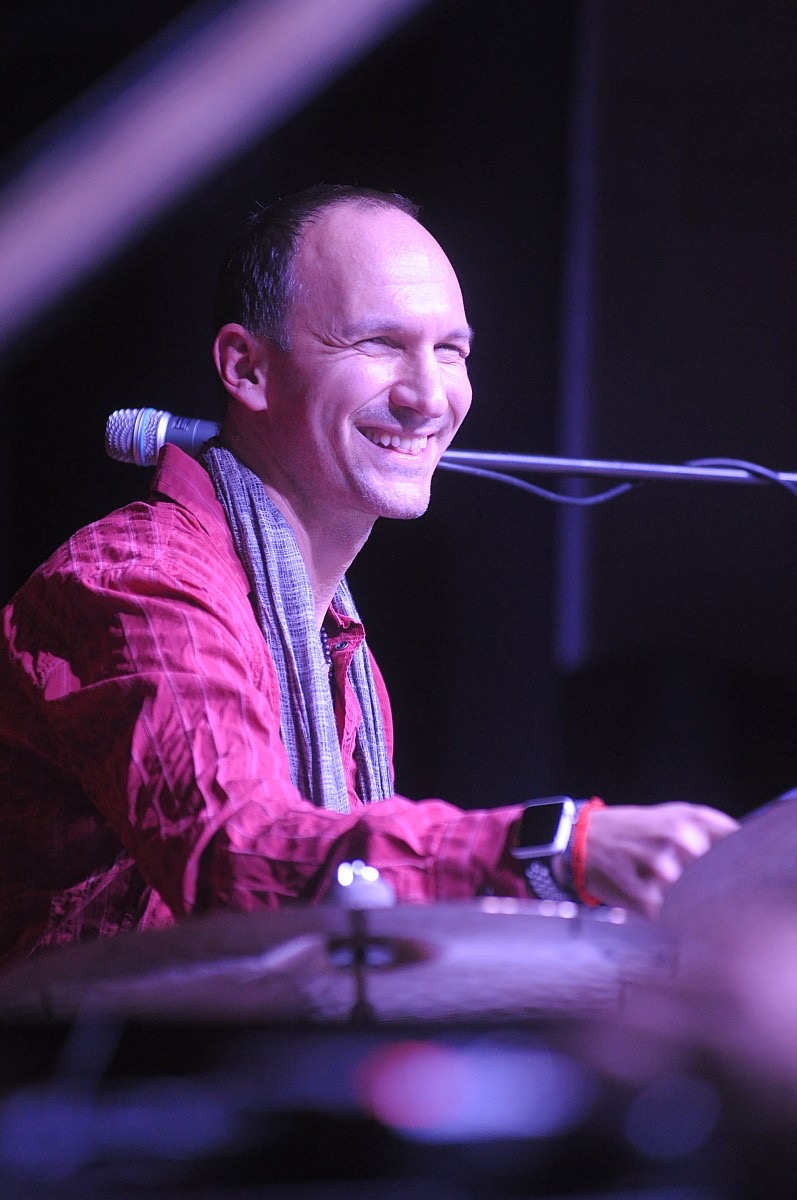 Drummer, bandleader, improviser, collaborator, and instructor of Drum School, a master class sold at the Mac App Store and Google Play, Ferenc Nemeth embraces the 21st century. From the freestyle thinking of jazz improvisation to the strides that intelligent technology has made for online classrooms, Nemeth moves with the times, finding outlets to create, play, and teach music. Excited about the possibilities to blend different breeds of music under the umbrella of jazz, Nemeth has played on several recordings to his credit, each experiment with world music forms that result in stimulating fusions.
Drummer, bandleader, improviser, collaborator, and instructor of Drum School, a master class sold at the Mac App Store and Google Play, Ferenc Nemeth embraces the 21st century. From the freestyle thinking of jazz improvisation to the strides that intelligent technology has made for online classrooms, Nemeth moves with the times, finding outlets to create, play, and teach music. Excited about the possibilities to blend different breeds of music under the umbrella of jazz, Nemeth has played on several recordings to his credit, each experiment with world music forms that result in stimulating fusions.
“I am originally from a small village of 1000 people in Hungary,” Nemeth commences. Today, he boasts, “I am a New York-based jazz drummer.”
Nemeth’s move from Hungary to the US was meant to be. “I came to the US after I finished my studies in the classical conservatory and the Franz Liszt Academy’s Jazz Department in Hungary,” he predicates. “When I was 20 years old, the band that I was playing within Hungary invited legendary vibraphonist Dave Samuels to play with us. Playing with Dave was a life-changing experience. He told me about Berklee College of Music in Boston and encouraged me to go and study there.”
He proceeds, “In 1998, I applied, and I got a scholarship. At that time, coming from Hungary, it was like going to the moon,” he equates. “I was super excited, and during my first two semesters, I’ve met some of the most influential people in my life, including the ‘wizard’ Hal Crook, who is still a mentor to me.” Continuing, he adds, “Gary Chaffee, Bob Moses, Greg Hopkins, John Ramsey, Bob Kaufman, John Abercrombie, and many others.”
“Berklee was important,” he weighs, “not only for the teachers and mentors but also for the musicians/friends who became a core part of my life.” He points out, “Like the co-led band GilFeMa members Lionel Loueke and Massimo Biolcati, who also designed and helped me develop my Drum School App.” Others who steered him include, “Francisco Pais, Daniele Camarda, Vardan Ovsepian, Walter Smith III, Peter Slavov, Dayna Stephens, Nick Vayenas and others. These musicians are all vital voices today on the jazz scene.”
“I’ve finished Berklee in just 2 years,” he notes, “and immediately I got a full scholarship to New England Conservatory. I started my masters, but halfway through, I got accepted to the Thelonious Monk Institute, now called Herbie Hancock Institute, in Los Angeles.
He enthuses, “That was an incredible opportunity that I could not believe I got. During those two years, we only had to rehearse/study and go on tour with the most incredible jazz musicians including Herbie Hancock, Wayne Shorter, Dave Holland, John Scofield, Terrence Blanchard, Christian McBride, Kenny Barron, and many others. Later on, we ended up recording with Herbie Hancock and Wayne Shorter for the debut album of Lionel Loueke on Blue Note Records.”
Moving forward, he chronicles, “In 2003, I moved to New York City, where I am still residing. I’ve recorded my first album as a bandleader when I was just 19 years old. Since then, I’ve released 4 albums as a leader and a couple of more as a co-leader. For me, it was always easy to be a sideman, as since I was 13 years old. I’ve been getting the calls. But I always wanted to play my music with my band.”
He was given the opportunity to compose and record his first recording in 2007 with his debut project Night Songs. The recording established Nemeth as a composer and arranger in his own right.
His sophomore release Triumph enabled him to expand his repertoire as he describes, “In 2012, I recorded my album called Triumph. I was only using sax, piano, guitar, and drums. No bass. I wanted to continue on this journey. That year I bought a vocal harmonizer. For many years, I was even afraid to use it at home.”
Triumph features guitarist Lionel Loueke, saxophonist Joshua Redman, and pianist Kenny Werner. Nemeth had collaborated with these musicians over the years and formed a bond with them that made it easy to fodder his imagination.
He recounts, “In 2016, I decided that it was time for me to turn the table and focus on my band mainly. Meaning that I still work with other bands but 80% of my time will be with my own group. It was very scary first, but I knew I have something special to offer. I started to go back to my roots and I did research on the Hungarian folk music that I’ve been listening to when I was growing up. Music that I was emotionally attached to.”
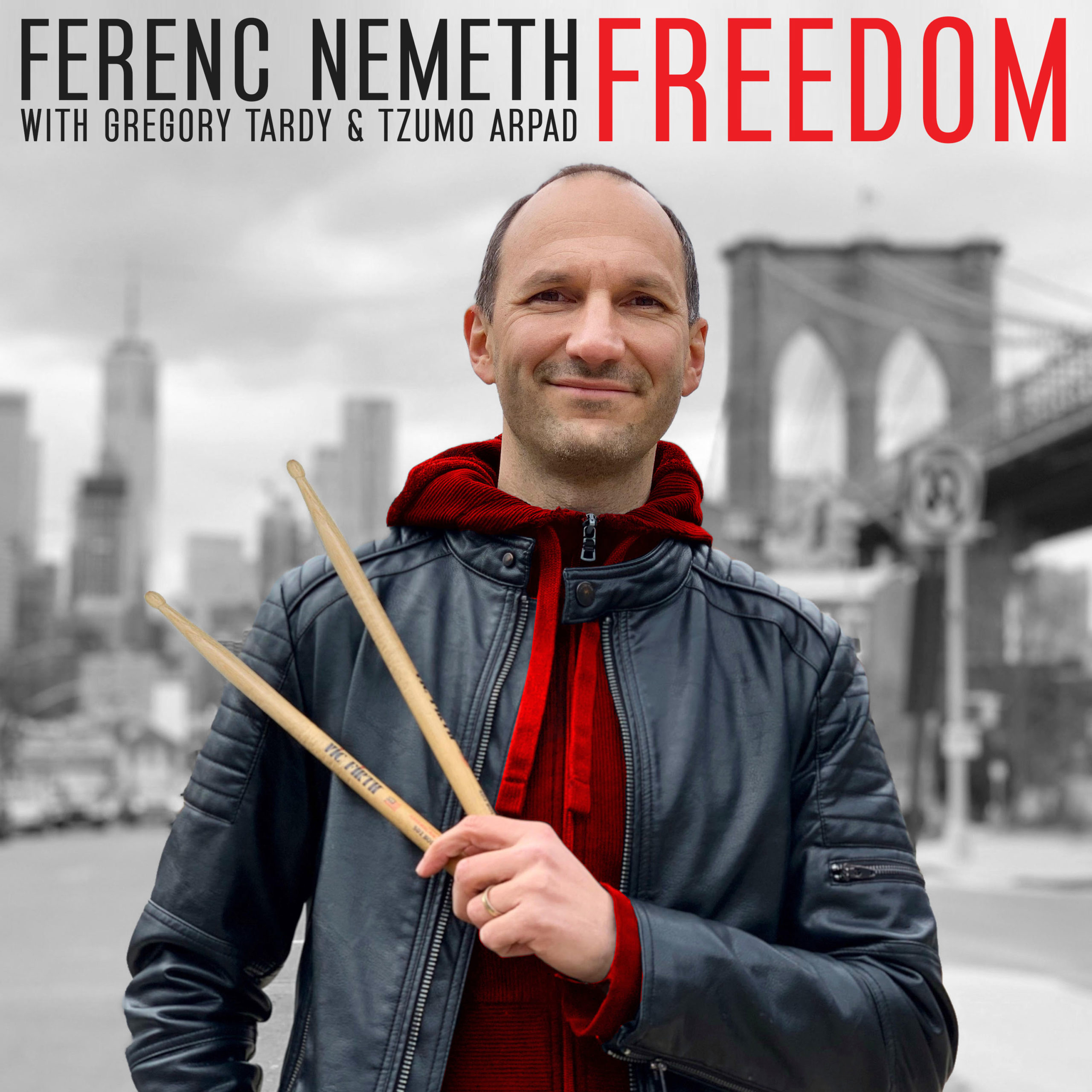 Fine-tuning his focus, Nemeth’s latest endeavor Freedom shows the drummer expanding his boundaries and discovering the possibilities with using the vocal harmonizer that he acquired in 2012 while merging the tool with his childhood influences of Hungarian folk music. “For my latest album Freedom,” he details, “I am not only using [the vocal harmonizer] as part of the background, but I also have a solo piece with percussion and vocal. It was a big breakthrough moment to play and record this. As I mentioned, I wanted to continue the bassless formation, so the new record is a trio with keyboards/piano, sax, and drums.”
Fine-tuning his focus, Nemeth’s latest endeavor Freedom shows the drummer expanding his boundaries and discovering the possibilities with using the vocal harmonizer that he acquired in 2012 while merging the tool with his childhood influences of Hungarian folk music. “For my latest album Freedom,” he details, “I am not only using [the vocal harmonizer] as part of the background, but I also have a solo piece with percussion and vocal. It was a big breakthrough moment to play and record this. As I mentioned, I wanted to continue the bassless formation, so the new record is a trio with keyboards/piano, sax, and drums.”
Desiring to blend multiple musical influences that have made an indelible impact on him, Nemeth introduces about the recording, “It features Greg Tardy on sax, Tzumo Arpad on piano/keyboards, and I am playing drums, percussion and doing all the vocals.”
“The title is actually controversial,” he establishes. “On the one hand, we have so much freedom these days. In fact, I think we live in the best possible time period ever. Not too long ago there was still slavery, flying was a privilege, people couldn’t eat, drink, wear what clothes they wanted.”
“Today,” he evaluates, “we have the possibility and freedom to do almost anything we want. I mean, we went to the moon 50 years ago! On the other hand,” he offers, “there is still racism, hate. There are still wars in some parts of the world, terrorism, people are still suffering, and many people simply don’t believe in themselves so they can’t break out of their limiting beliefs.”
“I and actually we, as a band collectively, believe in equal rights,” he proclaims. “We represent different backgrounds, colors, cultures, and races, and yet, we are all the same. You see, we don’t know exactly where we came from and we don’t know exactly where we are going. In the end, we are only humans, nothing else just skin and bone. And I think we should always consider that in our everyday actions and act like humans.”
“This is the main message of the album,” he propounds.” Musically speaking, I’ve incorporated many things that I’ve learned. Many things that I’ve experienced, traveling around the world. The melodies are mostly inspired by soulful Hungarian folk music. Still, the harmony and rhythm are a big mix of inspiration from jazz, classical music, rock, hip-hop, electronic music, and music from around the world, including African, Brazilian, Afro-Cuban, Middle-East and Eastern European music.”
The tracks on freedom take listeners through a multitude of vistas from the reposing smooth jazz sonorous of “Dare to Dream” to the bubbly Afro-Cuban grooves of the title track and the Middle Eastern shimmies coursing along “Soccer Game.” The inspiration for these compositions comes from several sources, as Nemeth postulates, “A couple of things inspired me really,” he remembers. “First, I started to do a big research on Hungarian folk music. Music that I love, music that is close to me, that I’ve listened to when I was a kid. Music that I’ve been connected with emotionally. These songs were the primary inspiration for the album. I’ve actually used some parts of those melodies or phrases in my compositions.”
“I was also inspired by the simplicity and the exciting sounds of electronic music,” he reveals, “that is not very prominent in jazz normally.”
“And finally,” he maintains, “current events were inspirations for me as well. Traveling around the world and seeing what is happening made me write music that has no language. Music that has no limits that are borderless and can speak to anyone.”
“As a side story,” he deflects, “almost simultaneously when I started to do the research on Hungarian music, a grant writer from Hungary contacted me and asked if I had any project that he could write a grant for. I gave him my material, canceled all my engagements for the next 6 months, and we got the grant, which was about $100,000!”
“I was super inspired,” he expresses cheerfully, “but only until I found out that he was a fraud, and he just wanted to use my name to get the money for himself. He offered me to do my project for $10,000 because he was in a financial crisis and he needed the money. Of course,” he intones, “I could not take part in this.”
“Suddenly,” he recalls, “I found myself with no work and no money. So, I used my time to write the songs, experiment and develop the 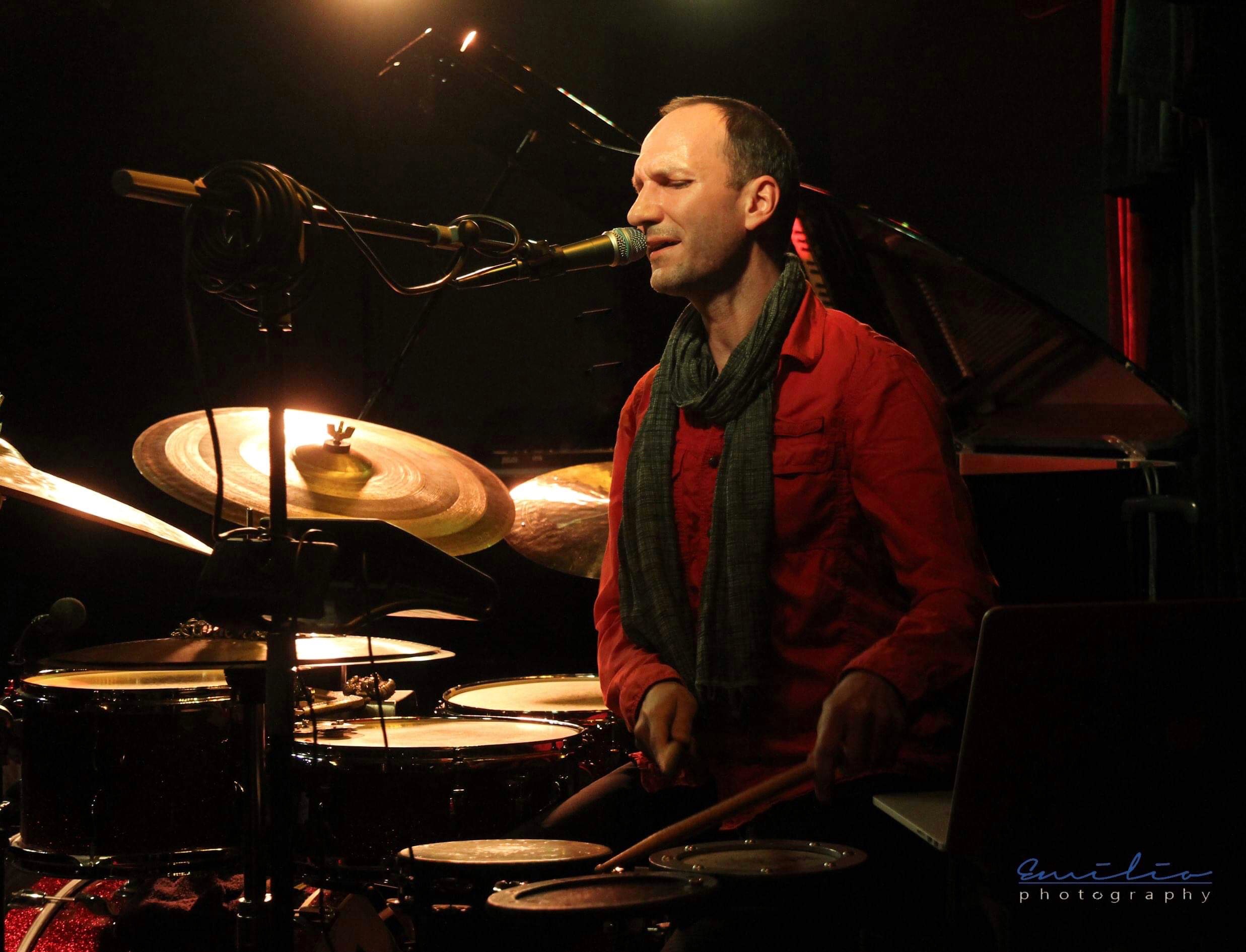 project. I believe that everything happens for a reason, and everything is as it should be and not necessarily as we want them to be.”
project. I believe that everything happens for a reason, and everything is as it should be and not necessarily as we want them to be.”
He reasons, “Sometimes, a huge setback turns out to be on your advantage! Even though I did not get the grant, I finished the project. I’ve toured around the world, and I’ve written and put together the best music I’ve ever done!”
A big part of what makes Nemeth able to compose the best music he is capable of producing is because “I write music all the time,” he admits. “Usually, the melodies come to me first,” he furnishes. “I might be in an airport, or waiting for the taxi, or visiting a museum, looking at some art. It could be anything, really.”
He estimates, “I have hundreds of voice recordings. These are usually small ideas that I develop when I go home and sit down to my piano. Other times it could be a groove or a bass line that I start to work on and inspires me to make it a song.”
“My go-to instrument,” he determines, “is the piano, as I mentioned. I’ve studied it since I was 12 years old. I am not a piano player per say, but that’s where I am the most comfortable writing at. Once I finish a song, usually I don’t make any changes, only minor adjustments.”
“But I also write music that enables the musicians to bring their personalities out,” he projects.” My music is more like a road map. Every time we play it, it sounds different. Just like the difference between having a map or actually driving down the road.”
“The recording procedure for me,” he examines, “has to be almost like a performance. I’ve recorded all of my albums in one day, and they almost sound like a live recording. I believe that there is something magical about doing one or two takes. I think, knowing that you only have one day to record puts you in a different mindset too. You have to bring the best out of you. There are no second chances. That’s how I also play, every time I sit down to my instrument.”
When he turned 40 years old, he recognized, “I’ve been studying jazz for more than half of my life. Jazz is my home,” he prides, “but I also have something else, something deeper that I carry with me since I was a kid. I drew inspiration from those soulful folk songs and I started to compose. I started to compose music that became a big mix of jazz, Hungarian folk music inspired melodies, rhythms from South America, from Africa, from the Middle East, from Eastern Europe, harmonies from classical music and jazz as well. On top of this, I wanted to create a sound that is unique and very personal to me.”
He defends, “I think the most important thing is to be original, be natural, honest, and embrace who you are. We are all unique human beings. Everybody has different DNA, thinks different, looks different. If you bring out that uniqueness, then your music will stand out.”
His inspiration to make music that is unique and very personal to him stems from his musical influences, which come from different areas of the musical spectrum. “I have so many influences from so many genres that are really hard to narrow them down,” he deduces. “One of the first jazz albums that I ever heard was Miles Davis’ Four and More.”
“Miles,” he singles out, “has definitely been one of my biggest influences and with that also Tony Williams, Jack DeJohnette, Philly Jo Jones, Herbie Hancock, Wayne Shorter, John Coltrane, Elvin Jones as well as Jeff’ Tain’ Watts, Brian Blade just to name a few in the jazz circle. My other influences are Bela Bartok, Beethoven, Chopin, Stravinsky, as well as Radiohead, Sting, Phil Collins, and so many others.”
Part of Nemeth’s ability to grow as a prolific drummer, composer, arranger, collaborator, and instructor is he openness to learn from other artists. “I like to think that I am very open to almost any kind of music,” he portrays himself. “I constantly discover new and old things. But to be specific, I’ve recently downloaded Markus Nylund’s Greatest hits Vol.2, John Coltrane’s Blue World, Esperanza Spalding’s 12 Little Spells, Kiefer’s Superbloom, Chick Corea’s Trilogy 2, and also music by Busta Rhymes, Massive Attack, Moonchild, Tinariwen, Miles Davis, George Adams, Arthur Rubinstein and many more.”
“Many people try to copy what’s trendy,” he discerns, “instead of focusing on creating music that has deep values, memorable and will stay for a long time. Connecting with your audience is a key element,” he declares.
“There are 7 billion people on the earth,” he reports. “We can’t please everyone, but we have to find and connect with the people who resonate on the same frequency as we are. And of course, you have to have a website, Facebook, Instagram, and other social media sites, and you have to be consistent on all of them. Today it is even easier to find your audience with the help of the Internet than 20-30 years ago.”
Nemeth makes it possible for audiences to experience his music and live performances online. “I have a lot of footage from the studio of my latest recording,” he asserts, “and we are working on the editing right now. As soon as possible, I will make them available to the public. I also have a lot of footage from my live shows, and I am constantly releasing them on social media sites.”
Audiences can get in touch with Ferenc Nemeth through his website at:
They can also download a free song from his new album Freedom, plus 2 other bonus songs from my previous albums at:
His social media sites can be found at:
www.facebook.com/FerencNemethMusic
www.instagram.com/FerencNemethMusic
His online presence also includes a master class that he instructs for app stores Drum School. He provides, “I’ve also created an Online Drum Masterclass series, and I am working on the editing. Simultaneously, I am learning about marketing and how to sell it. I have a drum-learning app in the AppStore and the GooglePlay Store and I am constantly updating it, adding new features and new content. I am also booking the tours for my band, although recently I’ve got an assistant, which helps a lot. In the rest of the time, I am writing music, practicing, and do everyday things.”
About Susan Frances:
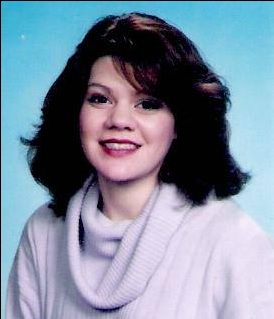 Born in Brooklyn, New York and raised in eastern Long Island, I always enjoyed writing and made several contributions to my high school literary magazine, The Lion’s Pen. Influenced by writers of epic novels including Colleen McCullough and James Clavell, I gravitated to creative writing. After graduating from New York University with a BA in Liberal Arts, I tried my hand at conventional jobs but always returned to creative writing. Since 1998, I have been a freelance writer and have over three thousand articles to various e-zines including: Jazz Times, Blogcritics, Yahoo Voices, Goodreads.com, Authors and Books (books.wiseto.com), TheReadingRoom.com, Amazon.com, Epinions.com, Fictiondb.com, LibraryThing.com, BTS emag, BarnesandNoble.com, RomanticHistoricalReviews.com, AReCafe.com, Hybrid Magazine, and BookDepository.com. In 2013 and 2014, I was a judge in the Orange Rose Writing Competition sponsored by the Orange County chapter of the Romance Writers of America located in Brea, California.
Born in Brooklyn, New York and raised in eastern Long Island, I always enjoyed writing and made several contributions to my high school literary magazine, The Lion’s Pen. Influenced by writers of epic novels including Colleen McCullough and James Clavell, I gravitated to creative writing. After graduating from New York University with a BA in Liberal Arts, I tried my hand at conventional jobs but always returned to creative writing. Since 1998, I have been a freelance writer and have over three thousand articles to various e-zines including: Jazz Times, Blogcritics, Yahoo Voices, Goodreads.com, Authors and Books (books.wiseto.com), TheReadingRoom.com, Amazon.com, Epinions.com, Fictiondb.com, LibraryThing.com, BTS emag, BarnesandNoble.com, RomanticHistoricalReviews.com, AReCafe.com, Hybrid Magazine, and BookDepository.com. In 2013 and 2014, I was a judge in the Orange Rose Writing Competition sponsored by the Orange County chapter of the Romance Writers of America located in Brea, California.


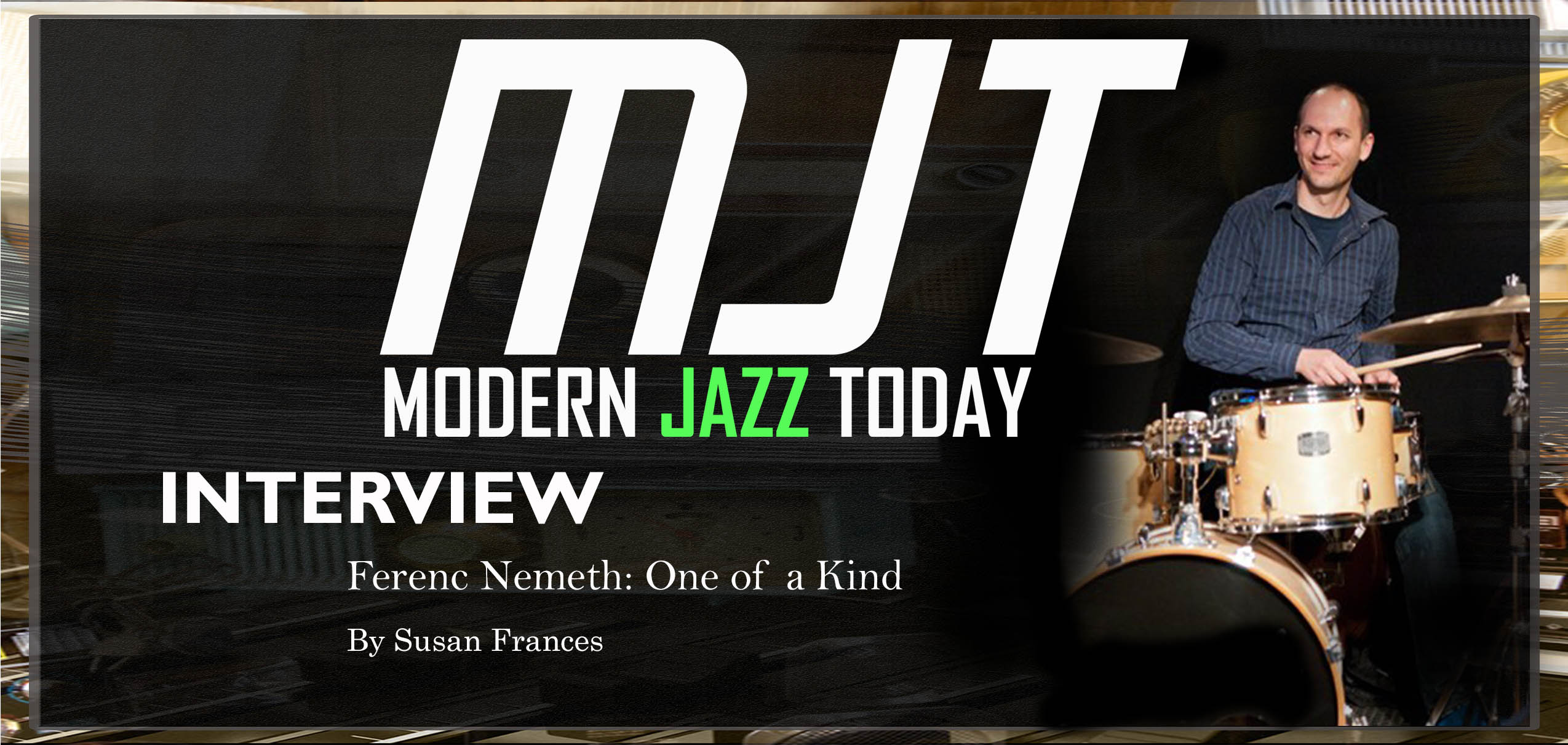


No Comments